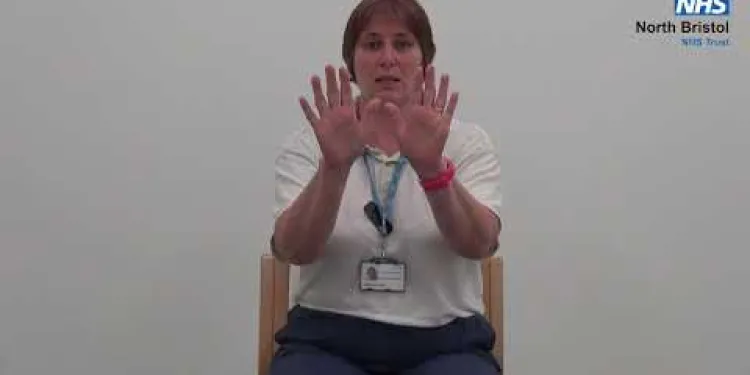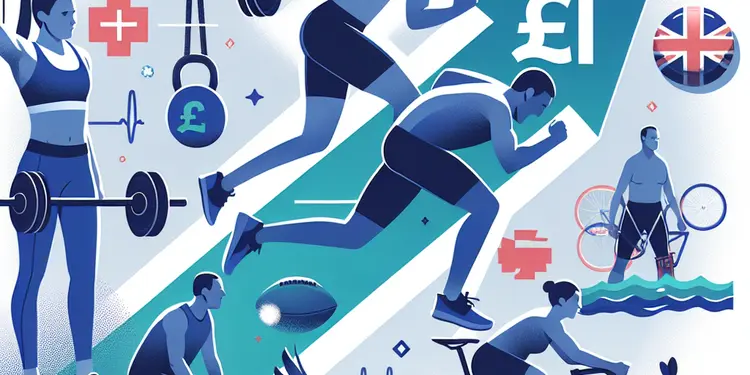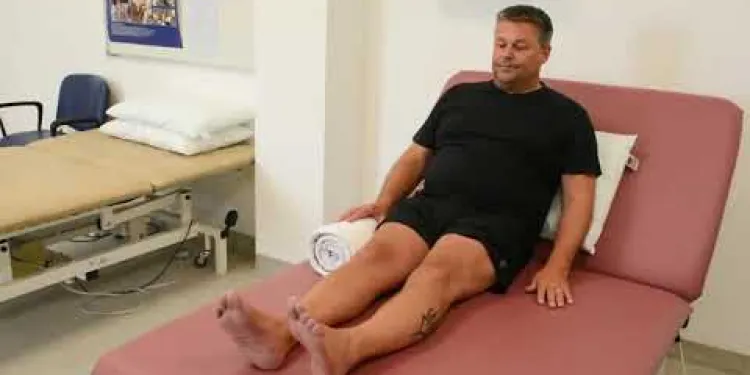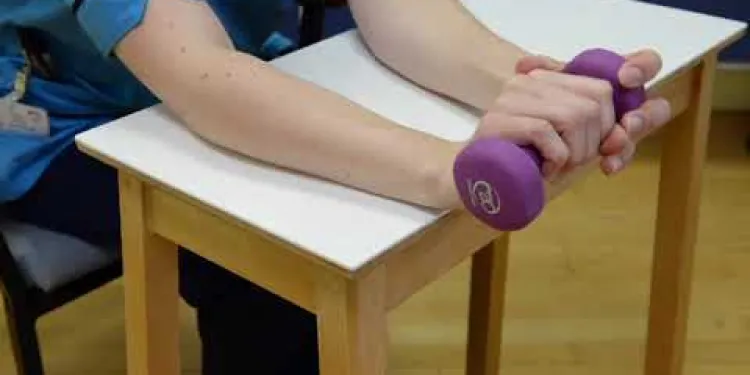
Find Help
More Items From Ergsy search
-

Exercise Routines for Busy Parents
Relevance: 100%
-

How can I design a mixed exercise routine?
Relevance: 47%
-

Why should I incorporate mixed exercises into my routine?
Relevance: 47%
-

Should I adjust my exercise routine during a heatwave?
Relevance: 45%
-

Navigating the Changes to Parental Leave Regulations
Relevance: 30%
-

Why are mixed exercises better ?
Relevance: 29%
-

Shoulder Exercises 1
Relevance: 29%
-

Navigating Legal Guardianship and Parental Responsibility in the UK
Relevance: 29%
-

What are mixed exercises?
Relevance: 29%
-

Do mixed exercises build endurance?
Relevance: 29%
-

Do mixed exercises help in preventing injuries?
Relevance: 28%
-

Can mixed exercises be done at home?
Relevance: 28%
-

Facial exercise programme
Relevance: 28%
-

How are parents involved in the SEND process?
Relevance: 28%
-

How often should I do mixed exercises?
Relevance: 28%
-

Are mixed exercises beneficial for weight loss?
Relevance: 28%
-

Is it necessary to have equipment for mixed exercises?
Relevance: 28%
-

Neck Exercises
Relevance: 28%
-

Will I be able to engage in physical exercise?
Relevance: 28%
-

Will mixed exercises improve my athletic performance?
Relevance: 28%
-

How do mixed exercises impact cardiovascular health?
Relevance: 28%
-

Can mixed exercises help in muscle toning?
Relevance: 28%
-

Is it safe to exercise with a cold?
Relevance: 28%
-

Is it suitable for beginners to try mixed exercises?
Relevance: 27%
-

Can mixed exercises prevent workout monotony?
Relevance: 27%
-

Upcoming Changes to Parental Leave Policies in the UK
Relevance: 27%
-

Neck Exercises
Relevance: 27%
-

How do mixed exercises aid in functional fitness?
Relevance: 27%
-

How does exercise benefit pregnancy?
Relevance: 27%
-

Can I do abdominal exercises during pregnancy?
Relevance: 26%
-

Joint School - Knee Exercises
Relevance: 26%
-

What advice is available for parents concerned about autism risks?
Relevance: 26%
-

Can businesses claim the EV grant?
Relevance: 26%
-

What is the role of parental monitoring in children's screen time and sleep?
Relevance: 26%
-

How do mixed exercises enhance flexibility?
Relevance: 26%
-

Do I need to consult a doctor before exercising during pregnancy?
Relevance: 26%
-

Elbow Eccentric Strengthening Exercise
Relevance: 26%
-

How often should I exercise during pregnancy?
Relevance: 25%
-

Do mixed exercises help in achieving a balanced physique?
Relevance: 25%
-

Is it safe to exercise outside during a heatwave?
Relevance: 25%
Exercise Routines for Busy Parents
Introduction
Balancing work, family, and personal time can be challenging for busy parents. Finding time for fitness often seems impossible, yet it is crucial for overall health and well-being. This guide provides practical tips and exercise routines that fit seamlessly into a hectic schedule, ensuring parents in the United Kingdom can stay active and energised.
The Importance of Short, Effective Workouts
For busy parents, long workouts are often unrealistic. Instead, focusing on short, high-intensity routines can be highly effective. High-Intensity Interval Training (HIIT) can deliver significant benefits in as little as 20-30 minutes. This approach helps improve cardiovascular health, build strength, and reduce stress efficiently. Sessions can be done at home or during a lunch break, making them accessible even with a packed schedule.
Incorporating Exercise into Daily Activities
Finding creative ways to incorporate physical activity into daily routines can make a considerable difference without requiring dedicated workout time. Activities such as walking or cycling to work, playing active games with children, or doing household chores at a brisk pace can provide substantial exercise benefits. This approach helps turn everyday tasks into opportunities for staying fit.
Utilising Technology
Numerous fitness apps and online platforms offer guided workouts, which can be a game-changer for busy parents. Popular apps like Nike Training Club, or subscription services such as Les Mills On Demand, provide a variety of workout options that can be done at home. These tools are designed to cater to different fitness levels and time constraints, making it easier to stay committed to regular exercise.
Scheduling Workouts
Adding workouts to a daily schedule helps turn fitness into a routine. Setting aside specific times of day, such as early mornings before the children wake up or evenings after they have gone to bed, can help ensure consistency. Even short workouts of 10-15 minutes can be beneficial and contribute to overall fitness goals when done regularly.
Family-Friendly Exercises
Involving the whole family in workout routines can be both fun and motivating. Activities like family walks, bike rides, or even setting up a mini obstacle course in the garden can provide a good workout for everyone. This not only helps in staying active but also promotes healthy habits for children.
Conclusion
Staying active as a busy parent in the United Kingdom is achievable with the right strategies. By focusing on short, effective workouts, integrating physical activity into daily routines, using technology, scheduling exercise time, and involving the family, parents can maintain their fitness levels and lead healthy lives. Remember, every bit of movement counts and helps in managing the stresses of daily life.
Exercise Routines for Busy Parents
Introduction
Being a parent means you have to juggle work, family, and personal time. It can be hard to find time to exercise, but it's very important for your health. This guide gives you easy tips and exercise ideas to fit into your busy day. Parents in the United Kingdom can use these tips to stay active and full of energy.
The Importance of Short, Effective Workouts
Busy parents often can't do long workouts. Instead, try short and intense exercises. This is called High-Intensity Interval Training (HIIT). These workouts can be done in just 20-30 minutes and are very effective. They help your heart, build strength, and reduce stress. You can do them at home or during a break, so they fit into your busy day.
Incorporating Exercise into Daily Activities
You can exercise while doing daily activities without setting aside extra time. Try walking or cycling to work, playing active games with your kids, or doing chores quickly. These activities help you stay fit as you go about your day.
Utilising Technology
Fitness apps and online videos can help busy parents exercise at home. Apps like Nike Training Club or services like Les Mills On Demand offer different workouts. They suit different fitness levels and time limits, making it easier to exercise regularly.
Scheduling Workouts
Put your workouts in your daily plan. Choose a time, like early morning before the kids wake up or in the evening after they sleep. Even 10-15 minute workouts can help if you do them regularly. They all add up to reach your fitness goals.
Family-Friendly Exercises
You can make exercise fun and include the whole family. Go for walks, ride bikes, or set up a mini obstacle course in the garden. These activities are good workouts and encourage healthy habits for kids.
Conclusion
Parents in the United Kingdom can stay active with smart strategies. Use short, effective workouts, fit exercise into daily activities, use technology, schedule your exercise time, and include the family. Every bit of movement helps you stay healthy and manage stress.
Frequently Asked Questions
How can I find time to exercise as a busy parent?
Finding time to exercise as a busy parent can be challenging, but you can fit workouts into your daily routine by waking up a bit earlier, incorporating exercise into family activities, or using short, effective workout routines.
What type of exercises can I do at home?
There are many types of exercises that can be done at home, such as bodyweight exercises (e.g., push-ups, squats), yoga, pilates, HIIT workouts, and resistance band exercises.
Are short workouts effective?
Yes, short workouts can be highly effective if done consistently and with enough intensity. High-Intensity Interval Training (HIIT) and circuit training are particularly effective when time is limited.
Can I involve my children in my exercise routine?
Absolutely! You can turn exercise into a fun family activity. Try going for a family walk, playing active games, or doing a parent-child workout video together.
What are bodyweight exercises?
Bodyweight exercises are strength training exercises that don't require free weights or machines. Common examples include push-ups, squats, lunges, and planks.
How often should busy parents aim to exercise?
Knowing your schedule is key, but aiming for at least 150 minutes of moderate aerobic activity or 75 minutes of vigorous activity every week is recommended. This can be broken down into more manageable chunks.
What equipment do I need for home workouts?
Many effective home workouts require no equipment at all. However, adding some basic equipment like a yoga mat, resistance bands, or dumbbells can enhance your workout options.
How can I stay motivated to exercise regularly?
Set realistic goals, track your progress, find a workout buddy, join online communities, and choose workouts you enjoy to help maintain motivation.
Are there online resources or apps for fitness routines?
Yes, there are numerous online resources and apps designed to provide fitness routines, such as YouTube workout channels, fitness apps like MyFitnessPal, and subscription services like Les Mills On Demand.
What is the best time of day to exercise?
The best time to exercise is the time that fits best into your schedule and that you can consistently stick to, whether it's in the morning, during lunchtime, or in the evening.
Can exercise help with stress relief?
Yes, exercise is a great stress reliever. It releases endorphins, improves mood, and acts as a natural way to reduce stress and anxiety.
How can I combine exercise with household chores?
Turn household chores into a workout by doing activities like cleaning, gardening, or playing active games with your children more vigorously. You can even try exercises like squats or calf raises while doing the dishes.
What are some quick and effective workouts?
Some quick and effective workouts include HIIT routines, bodyweight circuits, 7-minute workouts, and Tabata training. These workouts can be done in 10-20 minutes and are highly effective.
What should I do if I feel too tired to exercise?
If you're too tired, start with a low-intensity activity like a walk or gentle stretching. Sometimes beginning a workout can increase energy levels, but always listen to your body and rest if needed.
How can I make exercise a family routine?
Schedule regular family activity times, involve everyone in planning active outings, and encourage fun and participation. Making exercise a family routine can build healthy habits and create quality time together.
How can I find time to exercise as a busy parent?
Being a parent is hard. It can be tough to find time to exercise. Here are some tips that might help:
- Try short workouts, like 10 minutes. Do them in the morning or at night when kids are asleep.
- Exercise with your kids. Play games like tag or go for a walk together.
- If you drive your kids to activities, use that time to walk around while you wait.
- Look for online exercise videos. You can do these at home.
- Ask a friend or family member to watch your kids for a little while so you can exercise.
Remember, moving even a little bit can help you feel better!
Being a busy parent makes finding time to exercise hard. But you can do it! Try waking up a little earlier. You can also add exercise to family fun time. Short, quick workouts are helpful too.
What exercises can I do at home?
Here are some easy exercises you can do at home:
- Walking: Walk around your home or in your garden.
- Stretching: Reach up high and touch your toes.
- Jumping Jacks: Jump with your feet wide and arms up, then back.
- Dancing: Put on some music and move to the beat.
You might also like to try using a video or an app that shows you how to do exercises. These can help make sure you are doing them safely. Remember to drink water and take breaks!
You can try different exercises at home. Here are some you can do:
- Bodyweight exercises like push-ups and squats
- Yoga
- Pilates
- Quick exercises called HIIT workouts
- Exercises with stretchy bands called resistance bands
If you need help, you can use videos online that show you how to do these exercises step by step. You can also listen to calm music to help you focus.
Do short exercises work well?
Short exercises can be very good for you. You can still stay healthy by moving your body, even if you don't have much time.
Try doing exercises like jumping jacks, dancing, or even walking around your house for a few minutes. Every little bit helps!
To make it more fun, you can listen to music while you exercise or invite a friend to join you. You can use a timer to make sure you don't stop too early.
Remember, doing some exercise is better than doing none at all. Keep moving and have fun!
Yes, short exercises can work really well if you do them often and with lots of energy. Doing High-Intensity Interval Training (HIIT) and circuit training is great when you don’t have much time.
Can I exercise with my kids?
Yes, you can exercise with your kids!
It's fun and healthy for both of you.
Here are some tips to help:
- Choose easy activities like walking or dancing.
- Make it like a game to keep it fun.
- Set a regular time to exercise together.
- Use videos or apps for kid-friendly workouts.
- Remember to go slow and have breaks.
Exercising together can make you both feel great!
Yes, you can make exercise fun for the whole family! Try these ideas:
- Go for a walk together.
- Play games where you move a lot.
- Do a workout video with your child.
What Are Bodyweight Exercises?
Bodyweight exercises are ways to move your body to get strong without using weights or machines. You only use your own body. Some examples are push-ups, sit-ups, and jumping jacks.
Do you want to try bodyweight exercises? You can find some videos online to help you.
Remember to start slowly and ask someone for help if you need it.
Bodyweight exercises help you get stronger. You don't need any weights or machines to do them. Some examples are push-ups, squats, lunges, and planks.
How often should busy parents try to exercise?
Busy parents should try to exercise a little bit every day. Even short walks help!
Here are some tips:
- Walk with your kids outside.
- Play fun games that get you moving, like tag or dancing.
- Use an app or video to exercise at home.
Remember, doing a little is better than doing nothing at all!
It's important to know your schedule. Try to do at least 150 minutes of easy exercise or 75 minutes of hard exercise every week. You can split this time into smaller parts to make it easier.
What things do I need to exercise at home?
Many good exercises you can do at home don't need any tools. But, if you add some simple things like a yoga mat, stretchy bands, or small weights, it can make your exercises better.
How can I get excited to exercise regularly?
Here are some tips to help you:
- Set small and easy goals. Like walking for 10 minutes a day.
- Make it fun. Listen to your favorite music or play a game while exercising.
- Ask a friend to join you. It's more fun with someone else!
- Use a chart or app to track your progress. Seeing what you've done feels good.
- Reward yourself. After exercising, give yourself a nice treat.
Remember, doing a little bit every day can make a big difference!
Set goals you can reach. Keep track of how you are doing. Find a friend to exercise with. Join online groups. Pick exercises that are fun for you. This will help you stay motivated!
Can I find online tools or apps for exercise?
Yes, there are many websites and apps that can help you with exercise. You can find workout videos on YouTube. There are fitness apps like MyFitnessPal. You can also use services like Les Mills On Demand.
When is the best time to do exercise?
The best time to exercise is when it works best for you.
This could be in the morning, at lunchtime, or in the evening.
Pick a time that you can keep doing regularly.
You might find it helps to use reminders on your phone or ask a friend to join you for extra support.
Does exercise help you feel less stressed?
Yes, exercise can help you feel less stressed. It makes your body release feel-good chemicals called endorphins. This can make you feel happier and less worried.
How can I mix exercise with housework?
Do you want to exercise and do chores at the same time?
Here are some tips to help:
- Put on your favorite music and dance while you clean.
- Do squats when you pick things off the floor.
- Stretch your arms and legs while you dust or sweep.
- Walk fast or jog in place when you move from room to room.
- Use a timer to do a short exercise, like jumping, between tasks.
These ideas can help make housework more fun and active!
You can make cleaning your house a fun exercise! Try to move more when you clean, garden, or play games with your kids. For example, you can do exercises like squats or calf raises when you wash the dishes.
What are some short and easy exercises?
Here are some exercises that are quick and simple:
- Walking: Go for a short walk. It is good for your heart and muscles.
- Jumping Jacks: Jump and move your arms in the air. This is fun and helps you stay fit.
- Stretching: Reach your arms and legs out to help your body feel good.
- Dance: Play your favorite music and move to it. Dancing is exciting and good for you.
- Balance: Stand on one foot and try to keep your balance. This helps your muscles grow strong.
Here are some tips to help make exercise easy:
- Ask a friend to join you. It is more fun together.
- Use a timer. Set it for 5 or 10 minutes to help you stay active.
- Try to do a little each day. This makes you feel better over time.
Here are some fast and good exercises you can try:
- HIIT (High-Intensity Interval Training)
- Bodyweight exercises
- 7-minute workouts
- Tabata training
These exercises can take just 10 to 20 minutes. They are really effective! You could use a timer or an exercise video to help you.
What to Do If You Are Too Tired to Exercise
Do you feel too tired to exercise? That's okay!
Here are some things you can try:
- Rest for a while and see if you feel better.
- Try a short and easy exercise, like stretching.
- Drink some water to stay hydrated.
- Listen to music to feel more energetic.
It's important to take care of yourself. Remember, it's okay to rest some days.
If you feel too tired, start with something easy like a short walk or gentle stretches. Sometimes, starting to move can make you feel more awake. But always pay attention to how you feel and rest if you need to.
How can we exercise together as a family?
Plan fun family times where everyone can be active. Let everyone help choose what to do, like going for walks or playing games. Doing things together helps everyone stay healthy and spend time with each other.
Useful Links
This website offers general information and is not a substitute for professional advice.
Always seek guidance from qualified professionals.
If you have any medical concerns or need urgent help, contact a healthcare professional or emergency services immediately.
Some of this content was generated with AI assistance. We’ve done our best to keep it accurate, helpful, and human-friendly.
- Ergsy carfully checks the information in the videos we provide here.
- Videos shown by Youtube after a video has completed, have NOT been reviewed by ERGSY.
- To view, click the arrow in centre of video.
- Most of the videos you find here will have subtitles and/or closed captions available.
- You may need to turn these on, and choose your preferred language.
- Go to the video you'd like to watch.
- If closed captions (CC) are available, settings will be visible on the bottom right of the video player.
- To turn on Captions, click settings .
- To turn off Captions, click settings again.
More Items From Ergsy search
-

Exercise Routines for Busy Parents
Relevance: 100%
-

How can I design a mixed exercise routine?
Relevance: 47%
-

Why should I incorporate mixed exercises into my routine?
Relevance: 47%
-

Should I adjust my exercise routine during a heatwave?
Relevance: 45%
-

Navigating the Changes to Parental Leave Regulations
Relevance: 30%
-

Why are mixed exercises better ?
Relevance: 29%
-

Shoulder Exercises 1
Relevance: 29%
-

Navigating Legal Guardianship and Parental Responsibility in the UK
Relevance: 29%
-

What are mixed exercises?
Relevance: 29%
-

Do mixed exercises build endurance?
Relevance: 29%
-

Do mixed exercises help in preventing injuries?
Relevance: 28%
-

Can mixed exercises be done at home?
Relevance: 28%
-

Facial exercise programme
Relevance: 28%
-

How are parents involved in the SEND process?
Relevance: 28%
-

How often should I do mixed exercises?
Relevance: 28%
-

Are mixed exercises beneficial for weight loss?
Relevance: 28%
-

Is it necessary to have equipment for mixed exercises?
Relevance: 28%
-

Neck Exercises
Relevance: 28%
-

Will I be able to engage in physical exercise?
Relevance: 28%
-

Will mixed exercises improve my athletic performance?
Relevance: 28%
-

How do mixed exercises impact cardiovascular health?
Relevance: 28%
-

Can mixed exercises help in muscle toning?
Relevance: 28%
-

Is it safe to exercise with a cold?
Relevance: 28%
-

Is it suitable for beginners to try mixed exercises?
Relevance: 27%
-

Can mixed exercises prevent workout monotony?
Relevance: 27%
-

Upcoming Changes to Parental Leave Policies in the UK
Relevance: 27%
-

Neck Exercises
Relevance: 27%
-

How do mixed exercises aid in functional fitness?
Relevance: 27%
-

How does exercise benefit pregnancy?
Relevance: 27%
-

Can I do abdominal exercises during pregnancy?
Relevance: 26%
-

Joint School - Knee Exercises
Relevance: 26%
-

What advice is available for parents concerned about autism risks?
Relevance: 26%
-

Can businesses claim the EV grant?
Relevance: 26%
-

What is the role of parental monitoring in children's screen time and sleep?
Relevance: 26%
-

How do mixed exercises enhance flexibility?
Relevance: 26%
-

Do I need to consult a doctor before exercising during pregnancy?
Relevance: 26%
-

Elbow Eccentric Strengthening Exercise
Relevance: 26%
-

How often should I exercise during pregnancy?
Relevance: 25%
-

Do mixed exercises help in achieving a balanced physique?
Relevance: 25%
-

Is it safe to exercise outside during a heatwave?
Relevance: 25%


